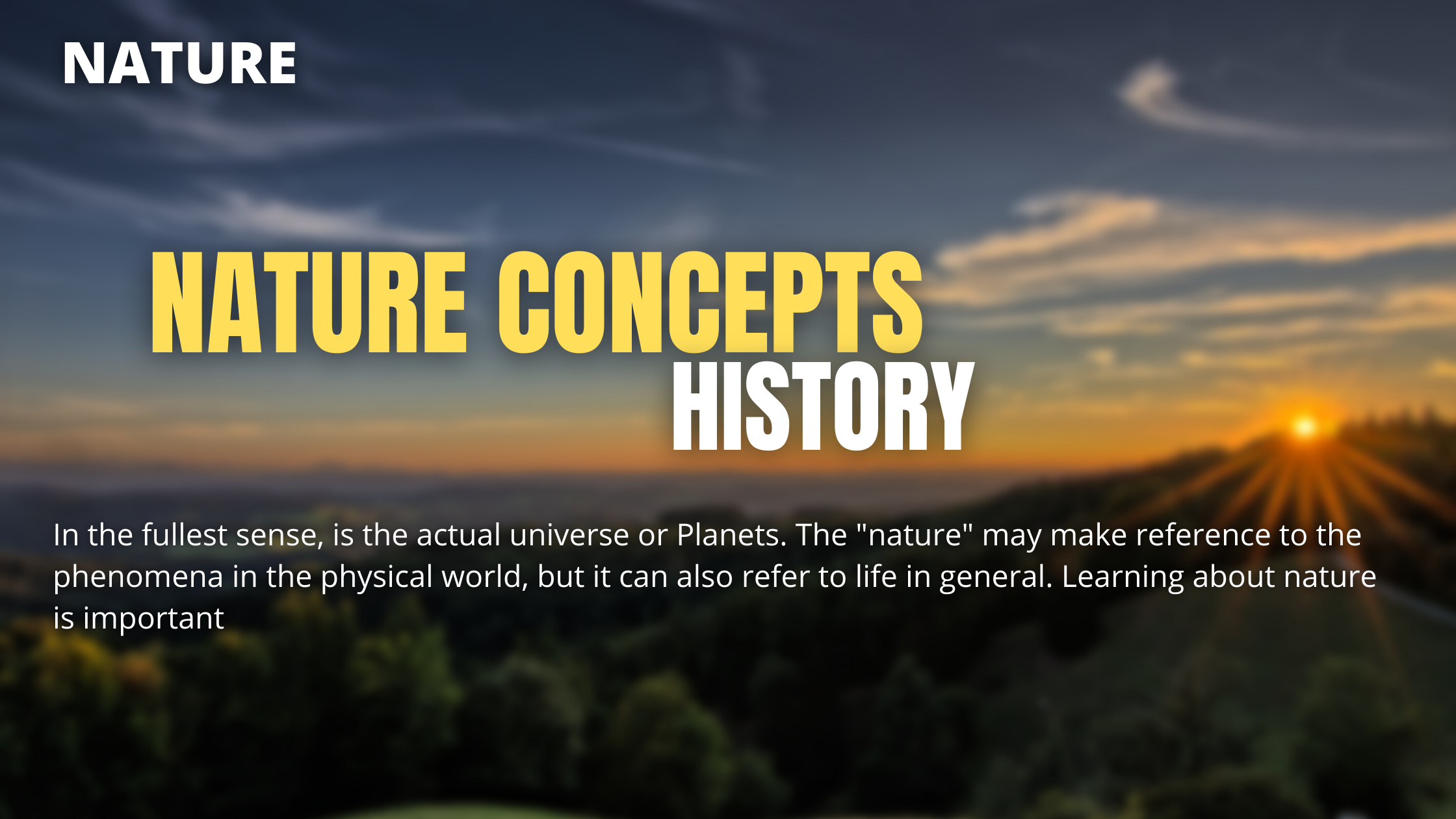in the fullest sense, is the actual universe or Planets. The "nature" may make reference to the phenomena in the physical world, but it can also refer to life in general. Learning about nature is important, if it is not unique, aspect of science. Even though humans belong to nature, Human action is widely considered to still be different from other natural events or phenomena.
The term nature comes from the Old French phrase nature, which is originally meant in the Latin word Natura, which implies "important properties, natural tendency," and meant "origin" in ancient times. Natura was most commonly employed in ancient greek philosophy as the Latin version of the Greek word physis, which actually refers to the intrinsic qualities of plants, animals, and other things of the world to evolve on their own. The definition of nature itself, the physiological universe, is the first of many additions to the original concept: it actually started with from before the philosophers' core applications of the term (though the word used to have a dynamic dimension only at period, — particularly for Heraclitus), and also has continuously gained currency since before.
Nature became the passive reality, ordered and moved by divine rules, after the introduction of the modern scientific method some centuries ago. Well with Scientific Revolution, nature became increasingly recognized as a portion of reality outside of what attempted to establish, and it was accordingly regarded more sacred by those traditions (Rousseau, American idealism), or even as a simple decorum for divine intervention and recorded history by others (Hegel, Marx). Furthermore, particularly after Charles Darwin, an alternative vitalist image of nature, nearer to a presocratic form, was resurrected at about the same time.
"Nature" is typically used to refer to geology and habitat in today's numerous usage of the term. Nature also leads to a full domain of living plants and animals, as well as, in some circumstances, inorganic object processes—the way that specific kinds of stuff exist or evolve on their own, including the weather and geological of the World. It's commonly understood to refer to the "natural habitat" or wildlife creatures, hills, woodlands, and other objects that haven't been significantly altered by human interference, or that have managed to overcome it. Manufacturing processes and human connection, for example, are not commonly supposed to be a part of nature only if they are specified as "human nature" or "the fullness of Nature". It much more traditional concept of objects in nature, which could still be discovered recently, emphasizes a distinction between natural and also artificial, with artificial being the only exception. generally defined as being anything created by human awareness or thought. The word "natural" can also be used to differentiate itself from the unnatural or supernatural, based on the circumstances.

